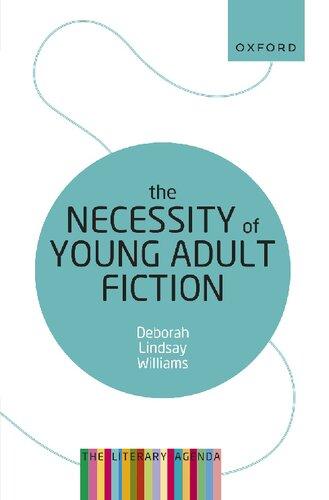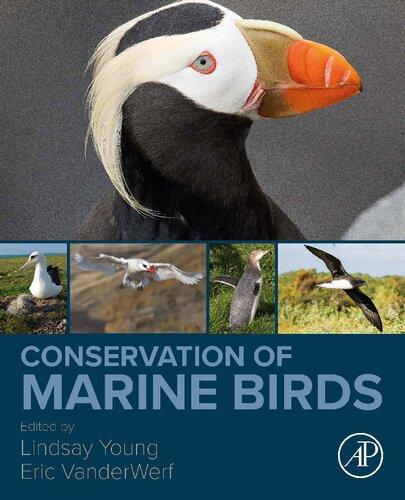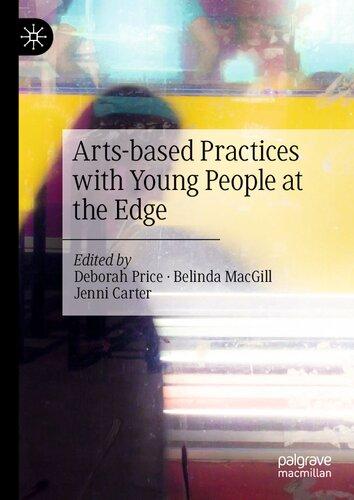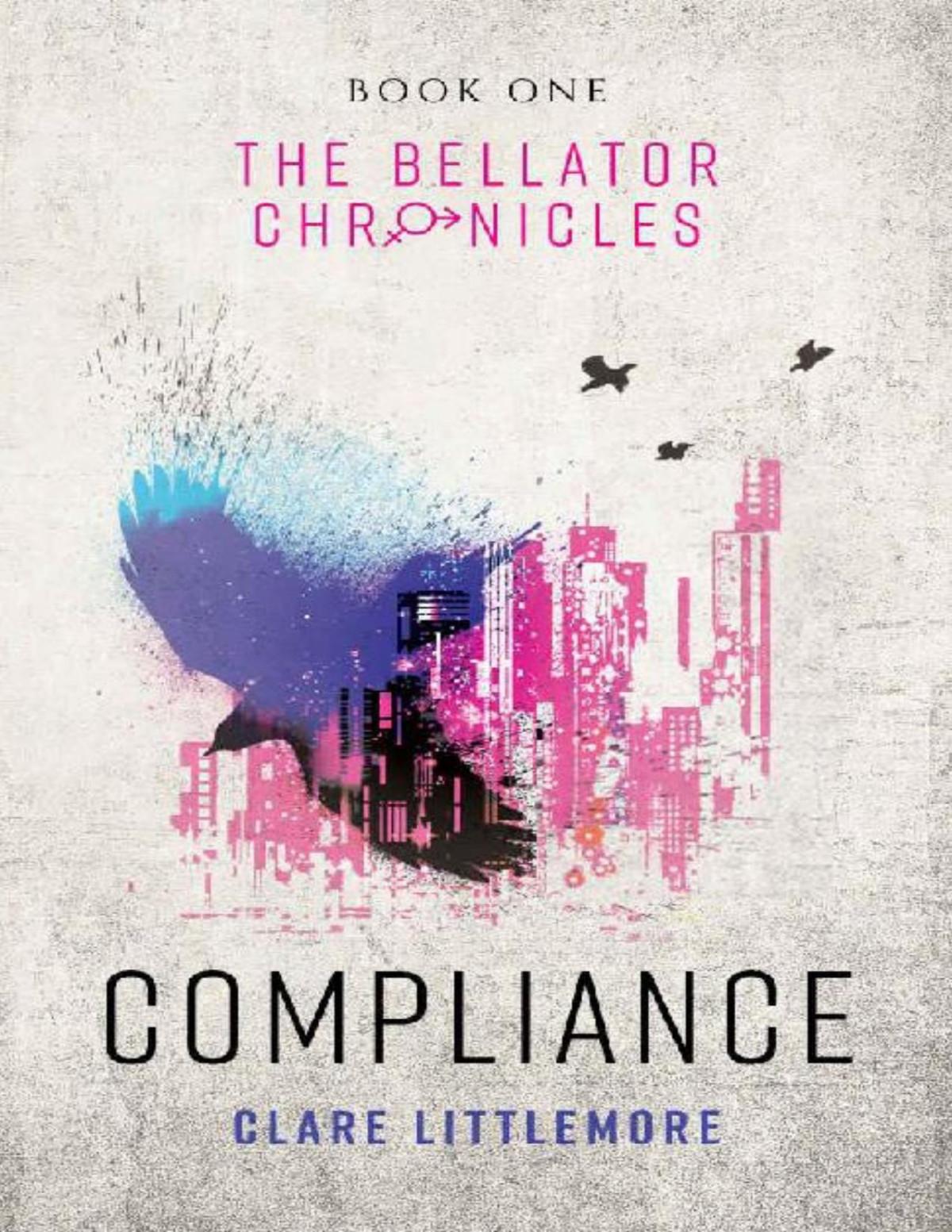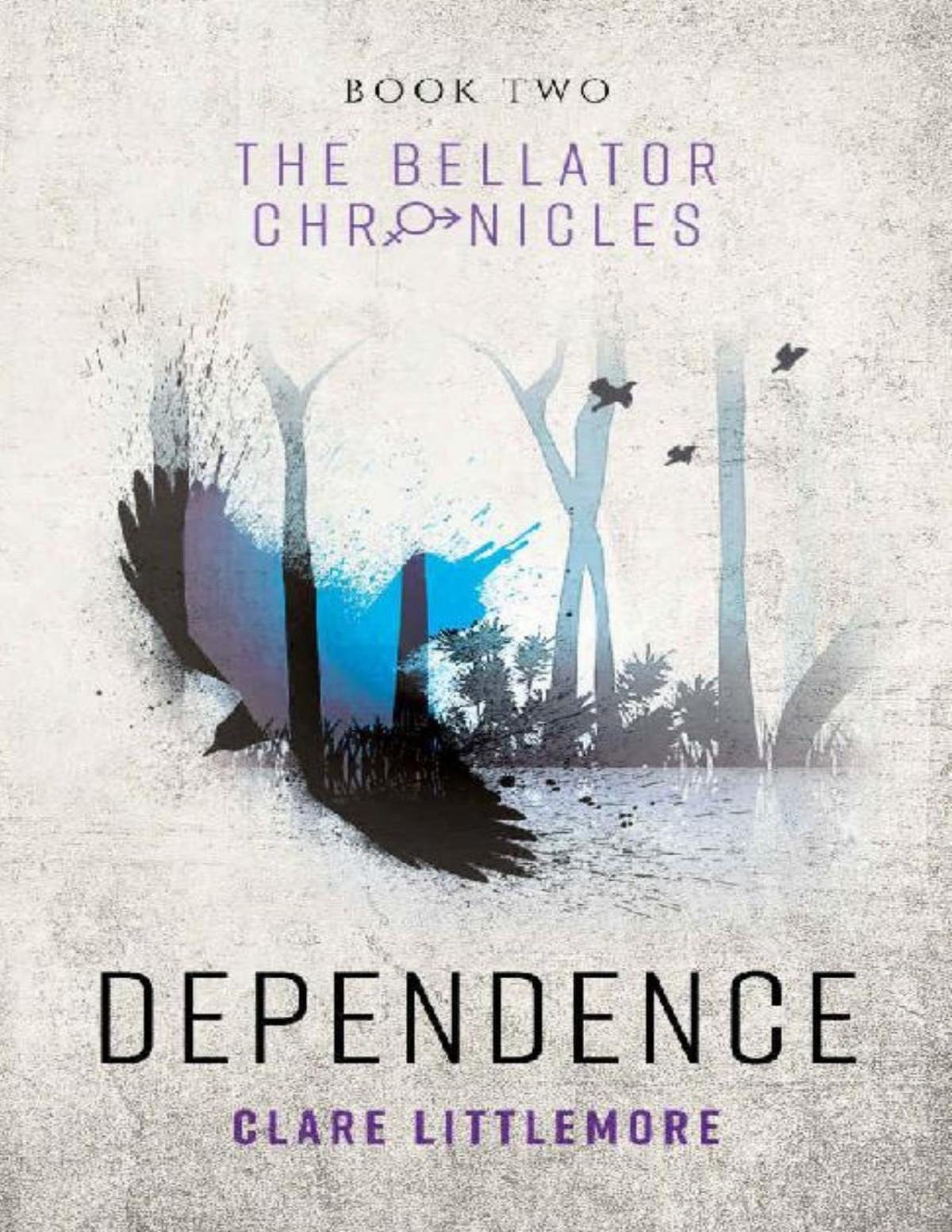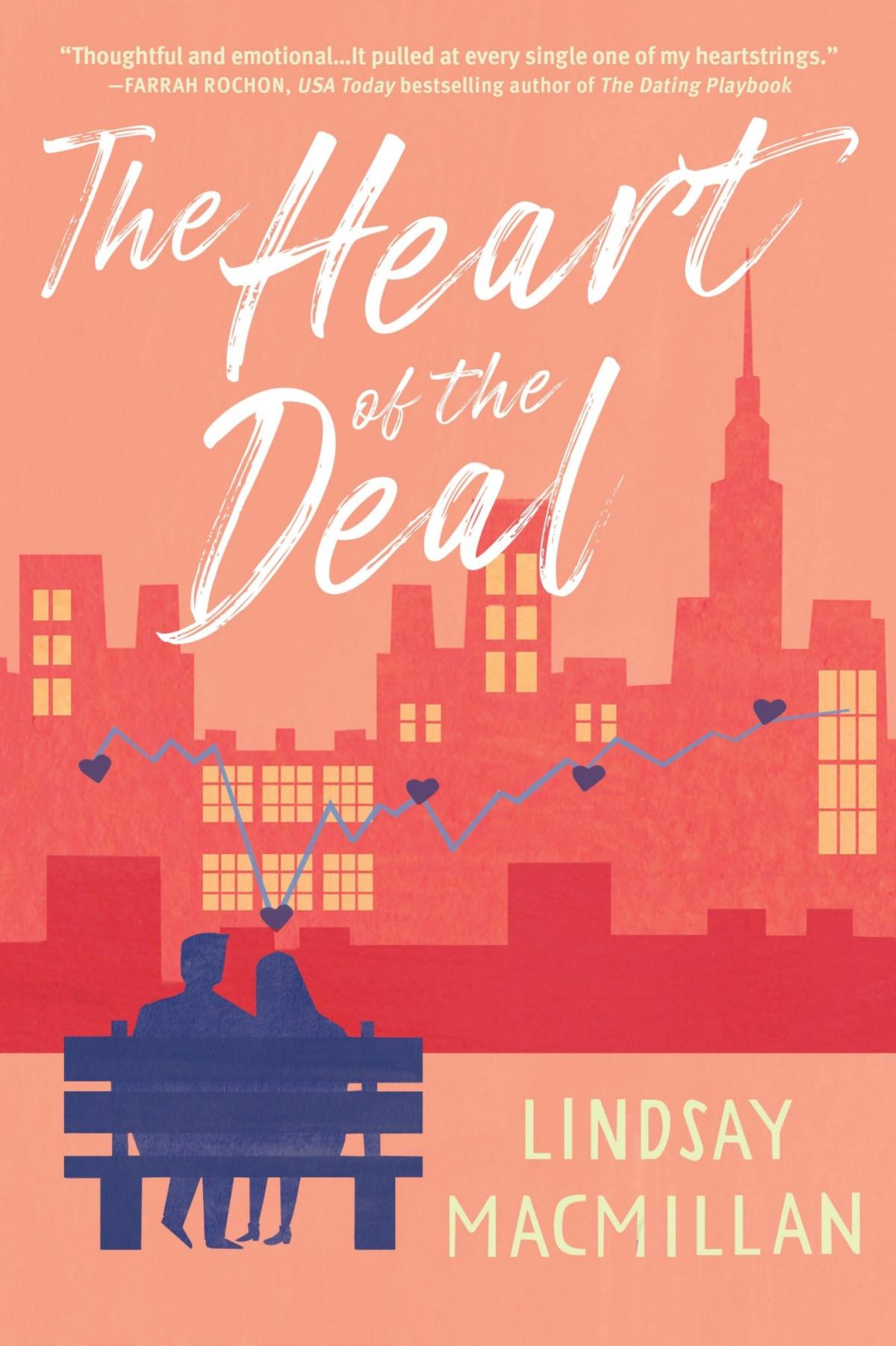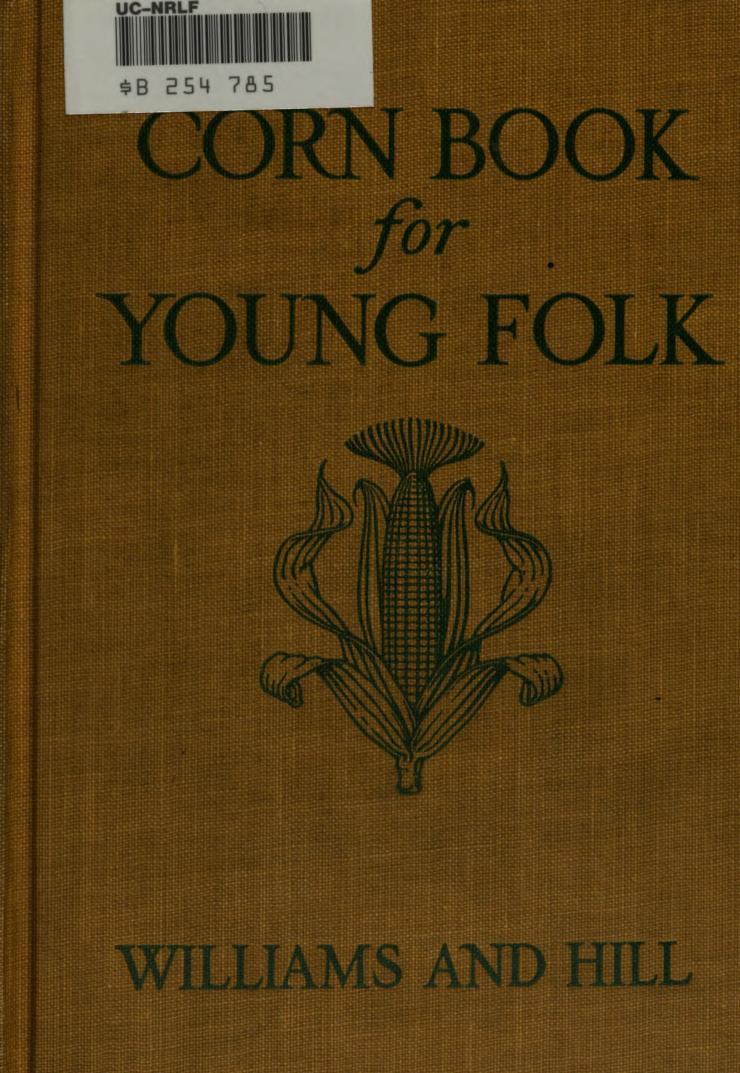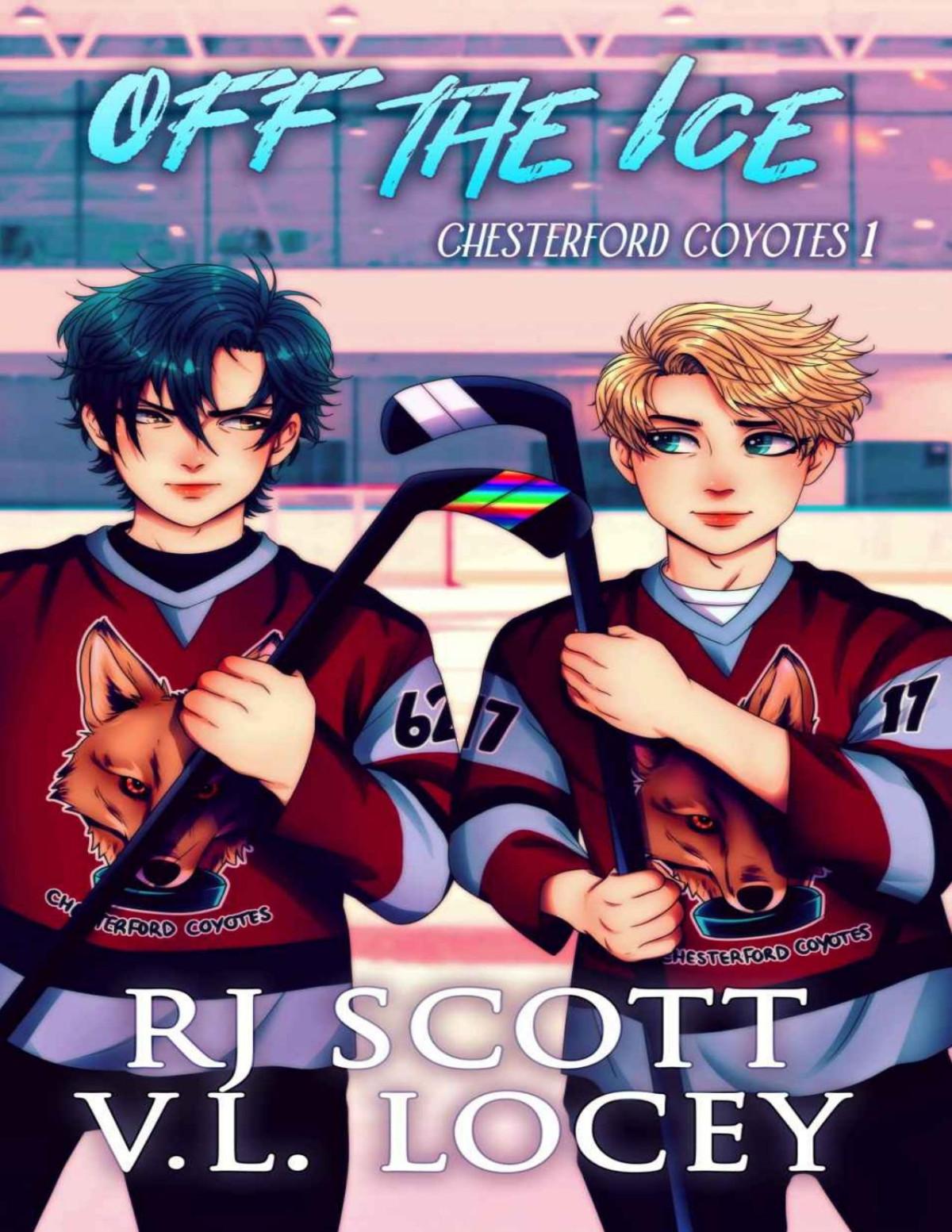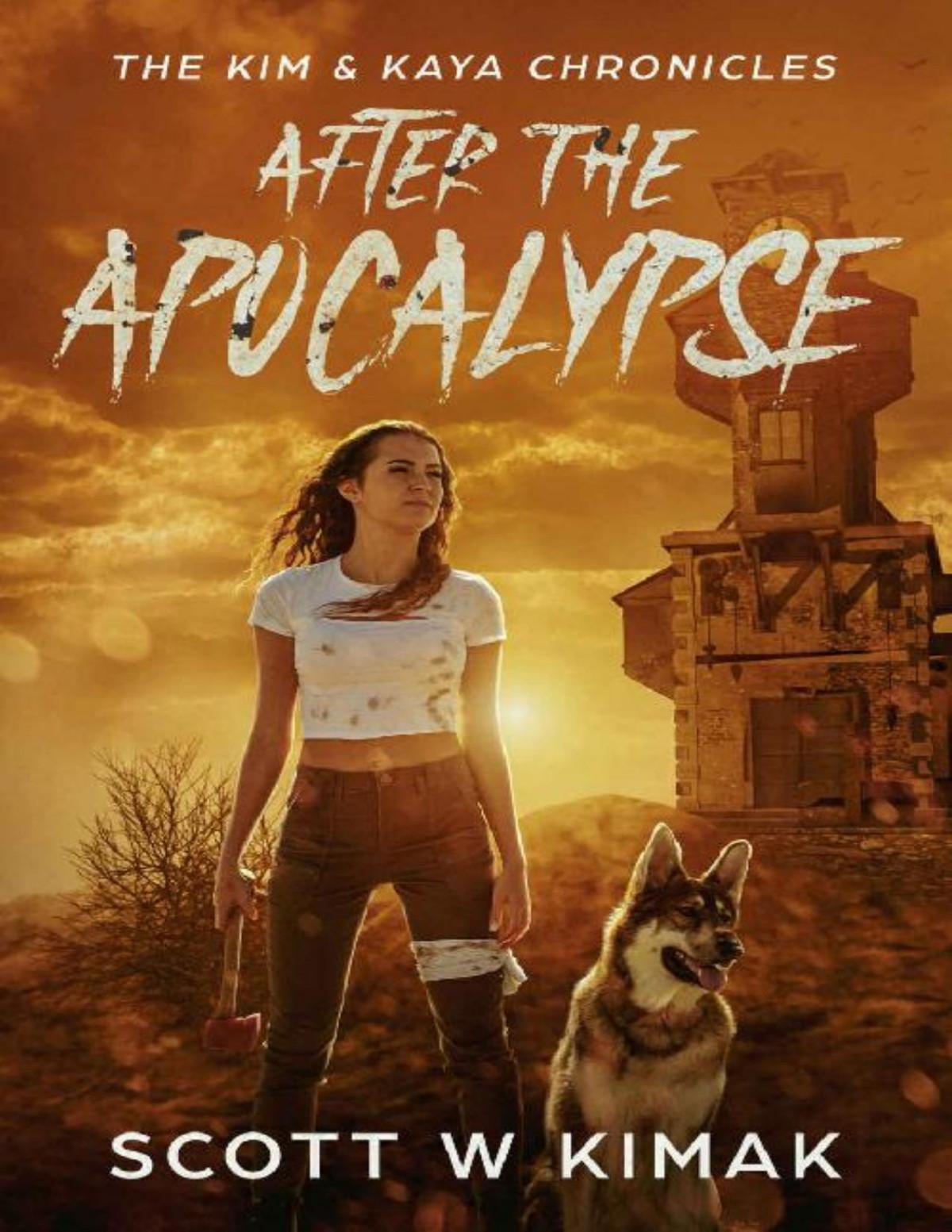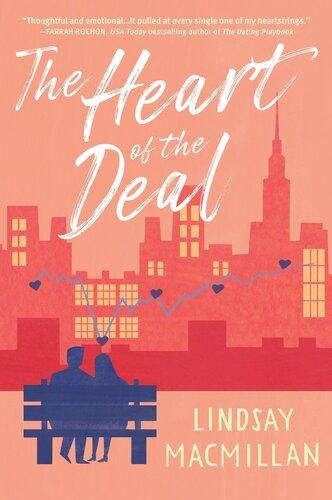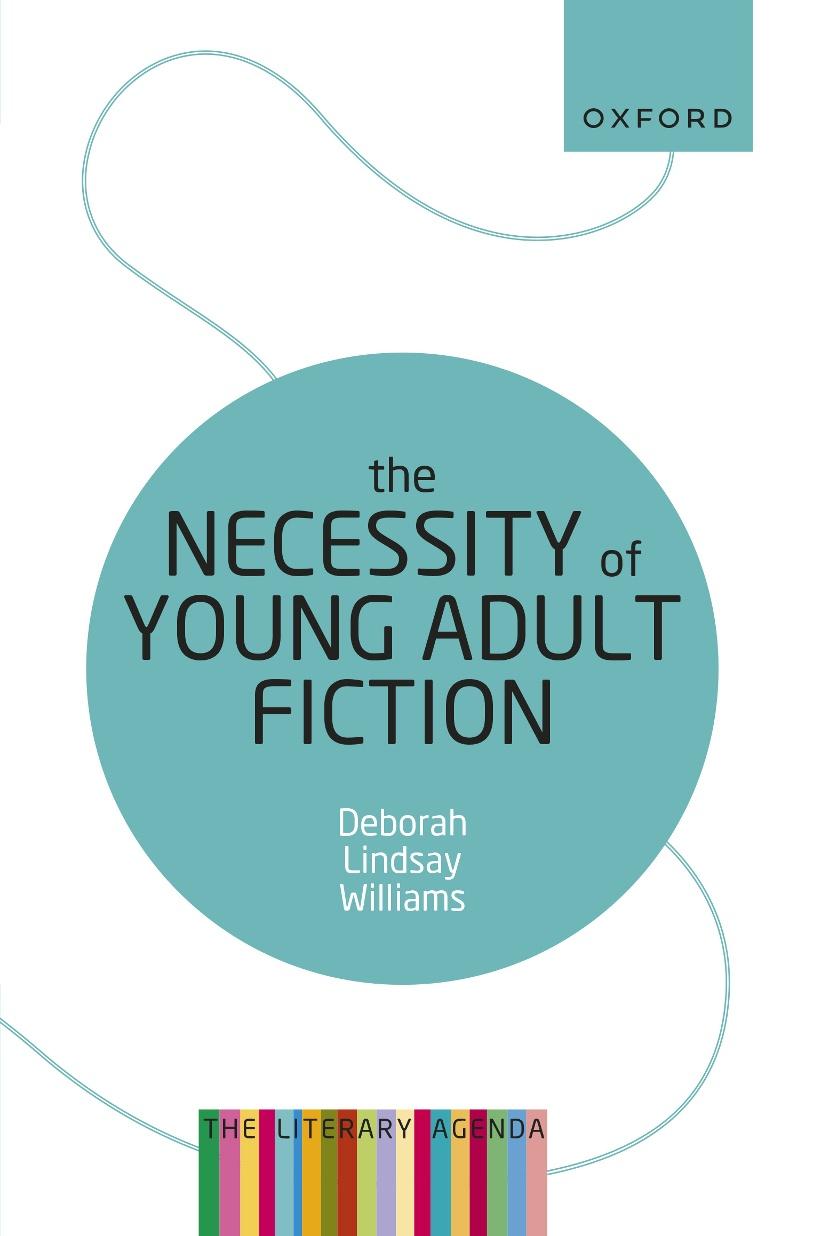TheNecessityof YoungAdultFiction
DEBORAHLINDSAYWILLIAMS
GreatClarendonStreet,Oxford,OX26DP, UnitedKingdom
OxfordUniversityPressisadepartmentoftheUniversityofOxford. ItfurtherstheUniversity’sobjectiveofexcellenceinresearch,scholarship, andeducationbypublishingworldwide.Oxfordisaregisteredtrademarkof OxfordUniversityPressintheUKandincertainothercountries
©DeborahLindsayWilliams2023
Themoralrightsoftheauthorhavebeenasserted
Impression:1
Allrightsreserved.Nopartofthispublicationmaybereproduced,storedin aretrievalsystem,ortransmitted,inanyformorbyanymeans,withoutthe priorpermissioninwritingofOxfordUniversityPress,orasexpresslypermitted bylaw,bylicenceorundertermsagreedwiththeappropriatereprographics rightsorganization.Enquiriesconcerningreproductionoutsidethescopeofthe aboveshouldbesenttotheRightsDepartment,OxfordUniversityPress,atthe addressabove
Youmustnotcirculatethisworkinanyotherform andyoumustimposethissameconditiononanyacquirer
PublishedintheUnitedStatesofAmericabyOxfordUniversityPress 198MadisonAvenue,NewYork,NY10016,UnitedStatesofAmerica
BritishLibraryCataloguinginPublicationData Dataavailable
LibraryofCongressControlNumber:2022945380
ISBN978–0–19–284897–0
DOI:10.1093/oso/9780192848970.001.0001
Printedandboundby CPIGroup(UK)Ltd,Croydon,CR04YY
LinkstothirdpartywebsitesareprovidedbyOxfordingoodfaithand forinformationonly.Oxforddisclaimsanyresponsibilityforthematerials containedinanythirdpartywebsitereferencedinthiswork.
TheCrisisin,theThreatto,thePlightoftheHumanities:enterthese phrasesinGoogle’ssearchengineandtherearetwenty-threemillionresults,inagreatfifty-year-longcryofdistress,outrage,fear, andmelancholy.Grant,even,thateverysingleanxietyandcomplaint inthatcatalogofwoeisfullyjustified—thelackofpublicsupport forthearts,thecutbacksingovernmentfundingforthehumanities, theimminenttransformationofaliteraryandverbalculturebyvisual/virtual/digitalmedia,thedeclineofreading ... Andstill,though itwerealltrue,andjustbecauseitmightbe,therewouldremainthe problemoftheresponseitself.Toooftenthere’srecoursetotheshrill moanofoffendedpietyoradefeatistwithdrawalintoprofessionalism.
TheLiteraryAgenda isaseriesofshortpolemicalmonographsthat believesthereisagreatdealthatneedstobesaidaboutthestateof literaryeducationinsideschoolsanduniversitiesandmorefundamentallyabouttheimportanceofliteratureandofreadinginthewider world.Thecategoryof“theliterary”hasalwaysbeencontentious. What is clear,however,isthatincreasinglyitisdismissedorunrecognizedasawayofthinkingoranarenaforthought.Itisskeptically challengedfromwithin,forexample,bythesometimesrivalclaims ofculturalhistory,contextualizedexplanation,ormediastudies.Itis shakenfromwithoutbyevengreaterpressures:byeconomicexigency andtheseveresocialattitudesthatcanfollowfromit;bytechnological changethatmayleavethetraditionalformsofserioushumancommunicationlookingmerelyantiquated.Forjustthesereasons,thisisthe righttimeforrenewal,tostartreinvigoratedworkintothemeaning andvalueofliteraryreadingforthesakeofthefuture.
Itiscertainlynotimetoretreatwithininstitutionalwalls.Forall theacademicresistanceto“instrumentalism,”togovernmentalmeasurementsofpublicimpactandpracticalutility,literatureexistsin andacrosssociety.The“literary”isnotpureorspecializedorselfconfined;itisnotrestrictedtothepractitionerinwritingorthe academicinstudying.Itexistsinthewholerangeoftheworldwhichis itssubjectmatter:Itconsistsinwhatnon-writersactivelyreceivefrom
writingswhen,forexample,theystarttoseetheworldmoreimaginativelyasaresultofreadingnovelsandbegintothinkmorecarefully abouthumanpersonality.Itcomesfromliteraturemakingavailable muchofhumanlifethatwouldnototherwisebeexistenttothoughtor recognizableasknowledge.Ifitistruethatinvolvementinliterature, sofarfrombeingaminorityaesthetic,representsasignificantcontributiontothelifeofhumanthought,thenthatideahastobeargued atthepubliclevelwithoutsuccumbingtoahollowrhetoricorbowingtoareductiveworld-view.Hencetheeffortofthisseriestotakeits place between literatureandtheworld.Thedouble-sidedcommitment tooccupyingthatplaceandestablishingitsrealityistheonly“agenda” here,withoutfurtherprescriptionastowhatshouldthenbethought ordonewithinit.
Whatisatstakeisnotsimplysomedefensiveorapologetic“justification”intheabstract.Thecaseastowhyliteraturemattersinthe worldnotonlyhastobearguedconceptuallyandstronglytestedby thought,butitshouldbegivenpresence,performedandbroughtto lifeinthewaythatliteratureitselfdoes.Thatiswhythisseriesincludesthewritersthemselves,thenovelistsandpoets,inordertotry toclosethegapbetweenthethinkingoftheartistsandthethinking ofthosewhoreadandstudythem.Itiswhyitalsoinvolvesother kindsofthinkers—thephilosopher,thetheologian,thepsychologist, theneuroscientist—examiningtheroleofliteraturewithintheirown life’sworkandthought,andtheeffectofthatwork,inturn,upon literarythinking.Thisseriesadmitsandencouragespersonalvoices inanunpredictablevarietyofindividualapproachesandexpressions, speakingwhereverpossibleacrosscountriesanddisciplinesandtemperaments.Itaimsforsomethingmorethanintellectualassent:rather theliterarysenseofwhatitisliketofeelthethought,toembodyan ideainaperson,tobringittobeinginanarrativeorinaidofadventurousreflection.Iftheartistsrefertotheirownworks,ifotherthinkers returntoideasthathavemarkedmuchoftheirworkinglife,thatisnot theirvanitynorafailureoforiginality.Itiswhattheserieshasasked ofthem:tospeakoutofwhattheyknowandcareabout,inwhatever languagecanbestservetheirmostseriousthinking,andwithoutthe necessityoftryingtocovereveryissueormeeteveryobjectionineach volume.
Acknowledgments
Alongtimeago,whenIworkedatIonaCollege,agroupofstudents beggedmeto“teacha HarryPotter class.”Itwaslongenoughago, infact,thatJ.K.Rowlinghadn’tevenfinishedtheseries,muchless becomeinfamousforherremarksabouttranspeople.Puttingtogether thatcourse,andlisteningtothewaythestudentsengagedwithHarry andtheotheryoungadultbooksonthesyllabus,markedthebeginning ofmyscholarlyinterestinYAliterature.
MythinkingaboutYAliteratureintersectedwithmythinking aboutcosmopolitanismwhenIstartedteachingatNYUAbuDhabi (NYUAD),afour-yearliberalartsuniversitywithstudentswhocome fromalmosteverycountryintheworld.The HarryPotter coursebecame“Myth,Magic,andRepresentationsofChildhood,”andthe conversationsthatoccurredoverthedecadethatItaughtthatcourse haveshapedtheideasthatareatthecoreofthisbook.Iamgratefultoallthestudentswhohavesharedtheirinsightswithme—and althoughafulllistisbeyondthescopeofthesepages,Iwantto makesuretomentionAishahShafiq,ZoePatterson,DominiqueLear, NikolajNielsen,AmritaAnand,MalakAbdel-Ghaffar,RabhaAshry, GabrielleFlores,VivianaKawas,andJamieSutherland.
ToshiReagon,singer,songwriter,andactivist,composedamusical versionof ParableoftheSower thatIfirstsawinaworkshopversionat TheArtsCenteratNYUAD.ThemusicandToshi’scommitmentto thelegacyofOctaviaE.ButlerforeverchangedthewayIthought aboutthenovel.Ifeelunbelievablyluckytohavebeenabletohear theworkperformedseveraltimesandtohavetalkedwithToshiabout theongoingproject;IoweBillBraginadebtofthanksforbringing Toshi’sworktomyattention.
Earlyworkon AkataWitch and TrailofLightning waspresentedat “BeingHumaninYALiteratures”attheUniversityofRoehampton inLondon,andlaterappearedasanarticleintheinauguralissueof the InternationalJournalofYoungAdultLiterature (IJYAL).Theanonymous reviewersforthejournalaskedincrediblyusefulandthoughtfulquestionsandIamgratefulfortheirinsights.IamalsogratefultoEmily
Acknowledgments
CorbettandAlisonWaller,theconferenceco-convenersandfounders of IJYAL,whosegenerosityandscholarshiphavesoenrichedthefield ofYAstudies.
AtOxfordUniversityPress,JacquelineNortonshepherdedthisproposalthroughthereviewprocess—ataskmadesignificantlymore challengingbecauseofthepandemic.IamgratefultoAimeeWright andEleanorCollinsforseeingthemanuscriptthroughproductionand toPhilipDavisforseeingthatadiscussionofyoungadultliteraturefit intotheLiteraryAgendaseries.
Theproposalforthisbook,andmuchofthemanuscript,waswrittenduringtheearlyyearsofthepandemic.Duringthatdarktime, whentheworldwassealedofffromitself,Iwasluckyenoughtobe inconversationwithsomeofmymarvelouscolleaguesatNYUAD: the“Pod”—ShamoonZamir,MarziaBalzani,MattySilverstein,and RobertaWertman.Scholarshipalonecannotsustainus:weneed friendship,laughter,andtheoccasionalstiffdrinktothrive.ThePod hasprovidedallofthesethings,andmore.IamgratefultoJustin StearnsandNathaliePeutzforthemanyimpromptuandthoughtprovokingconversationsaboutclimatechange,YAfiction,andteaching.AdebtalsotoShireenRKPatell,whoreadandcommentedonan earlyversionofthismanuscript.Mydecades-longconversationwith MarionWrennaboutwriting,teaching,andlifehavehelpedshaped mythinkingaboutthisbook–andeverythingelse.
Iamwritingtheseacknowledgmentsinthesadaftermathofmy colleagueKenNielsen’ssuddenanduntimelydeath,anditistohim thatIoweaprofounddebt.Hisincisivewitandcompassionateintelligence,aswellashisfiercedevotiontoqueerandmarginalizedpeople, createaformidablelegacy,onethatIstrivetohonoreverytimeIstep intoaclassroomortalkwithastudent.Hisfriendshipremainsoneof thegreatgiftsofmylife.
Theremustalsobethanksgiventomyfamily,whomadesureIfelt theirloveacrossthemanytimezonesthatseparatedtheU.S.andAbu Dhabi,whereIwaslivingwhileIwrotethisbook.
Andfinally,anutterlyinadequatethankyoutomyhusband,Cyrus R.K.Patell,index-makerextraordinaire,whosebeliefinmeknows noboundsandwhosethoughtfulcommentsimprovedeverypageof thisbook.Icouldnotaskforabetterpartnerinscholarshiporinlife.
Mysons,LiamandCaleb,arenowthemselvesyoungadults, launchingthemselvesintothisuncertainandcomplicatedworld.This bookisdedicatedtothem,inloveandhope.
Introduction:Why“Kids’Books?”
“Nowonderyourcourseissopopular,”saidacolleague.“It’sacourse on kids’books.”Hisvoicedrippedwithdisdain.Hedidn’tcomeright outandcallmeapanderer,butitwasimplied:Kids’lit,inhismind, wasnotaseriousendeavorand certainly notasubjectforuniversity students.Theclassisactuallyaboutyoungadultliterature,buttomy colleagueit’sallthesamething,andneitherisanappropriatesubject forcollegestudents.Asisoftenthecasewhensomeonesayssomethingungenerous,Ididn’thaveareadyresponse.WhatIwishI’dsaid isthatheshouldbegladthatI’mteachingthesebooksbecausewithout“kids’books,”there’dbenoreaders;andwithoutreaders,there’d benowriters,andprobablyfarfewerstudentswithaninterestinthe “serious”adultbooksthatheteaches.
Mycolleague’sdismissivecommentisnotunusual,despitethe steadyriseinchildren’sliteratureasafocusofscholarship.Thereare numerousrefereedjournals,professionalorganizations,andacademic publisherswithchildren’sliteratureimprints;scoresofdissertations arewritteneveryyearintheUnitedStatesandtheUnitedKingdomthatcenteronsomeaspectofchildren’sliterature(includingin thefieldsoflibraryscience,educationandpedagogy,publishing,and marketing).Andyetsomehow“children’sliterature”isseenasperipheral,notasimportantasliteraturewrittenforgrown-ups,even thoughchildren’sliteratureistheonlycategoryofliteraturethatcan accuratelybedescribedasuniversal:Wehaveallofusbeenchildrenandteenagers,whichmeanswehaveallbeen,atsomepoint, thetargetaudienceforthesebooks.Asteenagers,whenwefindourselvesinbooks,itseemstoresonatemorepowerfullythanwhenwe havethoseflickersofrecognitioninouradultreading.Astudentof minewhogrewupbetweenSeoulandLosAngelesfoundthatresonanceinNnediOkorafor’s AkataWitch (2011),whichisabouta NigeriangirlwhogrowsupinNewYorkandisteasedforheraccent,andthenmovestoAba,inNigeria,wheresheisalsoteased forheraccent.“That’s me,”saidthestudentwithgreatjoy.“Ididn’t
TheNecessityofYoungAdultFiction talktherightwaynomatterwhereIwas—andsoIkindastopped talkinginpublicforawhile.”Children’sliterature,likeallreading, helpsustoconnectwithourselves,todeepenourunderstandingof ourownexperiences—anditalsoestablishesconnectionsacrossdifferencethatwemightnototherwiseexpect,inpartbecauseweare conditionedtothinkmoreaboutdifferencethanweareaboutconnection.Whywouldweimagine,forexample,thataKoreancollege kidwouldidentifywithaNigerian“tween”?
Talkingabout“children’sliterature”setsupseveralproblemsof definition,nottheleastofwhichisthequestionof“category.”Children’sliteratureencompassesallgenresandforms:picturebooks, chapterbooksforearlyreaders,youngadult(YA)books;speculative fictionandnonfictionandsciencefictionandqueerromanceand tragedy,thrillersandcomediesandcookbooks.InthisLiteraryAgendasbook,IamgoingtofocusonYAfiction,whichingeneraltermsis oftenthoughttohaveemergedwithS.E.Hinton’snovel TheOutsiders, publishedin1967,whenHintonwasherselfeighteen.Thebookfocusesontheconflictbetweentwogroupsofteenagers—the“greasers” andthe“socs”(Socials)—andisnarratedbyPonyboyCurtis,agreaser andanorphanwholiveswithhistwoolderbrothers.Ponyboy’ssocialandemotionalstrugglesbecameparadigmaticforthefirstwaveof YAfiction,whichpurportedtoberealisticportrayalsoftensionsthat hadlongbeenbrewinginUSsociety.1 Thisnovelalsopopularized theimageofthemisfitonthemargins—Ponyboyisalessprivileged andcynicalversionofHoldenCaulfield,theheroofSalinger’s The CatcherintheRye (1951).Salinger’sbookwasoriginallyintendedfor adultreadersandbecamemoreofa“teenclassic”intheaftermathof TheOutsiders andothers.InthefirstdecadesafterHinton’snovel,the categoryof“YA”primarilydesignatedfictionthatfocusedoncharactersbetweentheagesoftwelveandeighteen.AsMichaelCartpoints outina2008essayfortheYoungAdultLibraryServicesAssociation (YALSA),
between1990and2000thenumberofpersonsbetween12and 19soaredto32million,agrowthrateofseventeenpercent thatsignificantlyoutpacedthegrowthoftherestofthepopulation.Thesizeofthispopulationsegmenthasalsoincreasedas theconventionaldefinitionof“youngadult”hasexpandedto
includethoseasyoungastenand,sincethelate1990s,asoldas twenty-five.
(2008np)
Cart,whohasbeenalong-timeadvocateforYAliterature,alsonotes thatYAnowspansallgenresandforms.
FurtherblurringthecategoryofYAisthefactthatthereadershipisoftenmore“A”than“Y.”Perhapsfreedbythepopularityof the HarryPotter series,adultsareeagerconsumersofwhatisconsideredYAfiction.RachelFalconerusestheterm“crossoverfiction”to describethismixedreadership,whichshesuggestsweseeasanindicationthat“children’sliteraturehasneverexistedinatrulyseparate sphere ... [because]anessentialfeatureofthiscategoryoffictionis thatitsboundariesareunfixed”(9).Thoseunfixedboundariesmay explainwhy HarryPotterandtheDeathlyHallows (2007),hadbiggersales fortheadulteditionsthanforthechildren’seditions(Falconer16). Adults,itwouldseem,notonlydomostofthewritingofYA,butthey arealsoinvolvedatthebusinessendofthepublishingprocess,and atthepurchasingend,buyingforthemselvesalmostasfrequentlyas theybuyfortheteenagedreadersintheirlives.Iimaginethatadults willbethereadersofthisbook,afactthatfurtherillustratestheblurrinessofcategorization.Evenifadultsaren’treadingYAfortheirown pleasure,theyareintimatelyinvolvedinitsproduction.
Unlike,forexample,“detectivefiction,”“YAliterature”isatonce adesignationofcontentandaudience—anaudiencethatisalwaysin themidstoftransforming.Wehaveallbeenteenagers;wehavenotall beendetectives.Wecanrememberourselvesasteenagedreaders,the utterimmersionwithwhichweusedtosinkintoastory,anexperience thathovers,ghost-like,whenorifwereturntothosebooksasadults. Thebooksbecomeamirrornotonlyofthemomentwhentheywere writtenbutalsoofwhereandwhowewerewhenwefirstreadthem. Becausewereadthesebookswhenweareyoung(oryoungerthanyou arenow,presumably,asyoureadthisbook),ourreadingexperiences areoftenmoreintense,unmediated.Thereadingisnotnecessarily “innocent,”butitmaybe,perhaps,unawareofthebook’sreviewsor theauthor’spolitics.PhilipPullmansuggeststhatyoungreadersare anexactingaudience,eveniftheymightnotbe“sophisticated”inan adultsense:“inabookforchildrenyoucan’tputtheplotonhold
TheNecessityofYoungAdultFiction whileyoupostureartistically ... .[Thesereaders]havemoreimportantthingsinmindthanyourdazzlingskill”(qtd.inFalconer5).When teenagersengagewithfiction(unlessthey’rereadingabookforschool andthusprobablyforsomekindofanexam,whichwemightthink ofas“transactionalreading”–readingforapurposeandinformation ratherthanpleasure),theycanbethoughtofas“layreaders,”people whosereading“proffersthepossibilityofreconnectingwiththeeverydaylifeofliteraryengagement”(BuurmaandHeffernan115).Unlike literaryscholars—scholarswritingforotherscholars—forwhomthe stereotypeofahermeticallysealeddiscourseisoftenalltooaccurate, teenagersseethemselvesandtheirworldsinthetexts;theirreading becomes,asEricShousedescribesit,“anon-consciousexperienceof intensity ... ofunformedandunstructuredpotential”(Shouseqtd.in AnkerandFelski175).Iwanttofocusontheword“potential”here, becausethat’soneofthekeyfactorsthatmakesYAliteraturesoimportant:ThereadershipofYAisoneof potential.Thesearereaderswho donotyetholdanyoftheofficialleversofpowerandwhoexist,ina sense,onthemarginsoftheirsocietiesbyreasonoftheirage.Manyof themareadditionallymarginalizedbyreasonofsexuality,ethnicity, nationality,economics,orreligion.WhatIseeinYAliteraturearethe waysthatthetextsrendertheexperienceofbeingsidelinedandthen offerexamplesofhowreadersmightimaginethemselvesaspeople withagencyintheworld.Weseecharacterswhodiscovertheability toengagewithandsometimesevenimprovetheworldsinwhichthey live.Isupposesomewouldsaythatitisnaïvetothinkthatfictioncan changetheworld,andperhapsthat’strue.Butpeoplecanchangethe world—andbookscanchangepeople.
Fictionallowsustoinhabitlivesthatarenotourown:Whenwe read,weareinsidelivesandconsciousnessesthatmaybequitedifferentfromourdailyexperiences.Asweread,wedonoterasedifferences betweenourselvesandtheprotagonists;instead,wefindmomentsof connectionandresonancethatenableustobridgethosedifferences, likemyKoreanAmericanstudentdidinreading AkataWitch.Reading aboutSunnyNwazue’sexperiencesonthemarginsgavethestudent insightandlanguagewithwhichtothinkaboutherownlife:Connectionswereestablishedacrossdifference.Althoughshedidn’tname itassuch,thestudenthadengagedwithwhatIwillbecallinginthis bookacosmopolitanreadingpractice,whichnecessitatesawillingness
toengage,tomoveawayfromwhatiscomfortableorfamiliar.Fiction, astheAmericanphilosopherMarthaNussbaumsays,iswhatdevelops“thecompassionateimagination,whichcanmakeotherpeople’s livesmorethandistantabstractions”(np).Itisinabstractionthatthe threateningOther—themigrant,immigrant,slave—becomesamonster.In MonsterTheory:ReadingCulture (1996),JeffreyJeromeCohen stipulatesthat“themonster’sbodyquiteliterallyincorporatesfear,desire,anxiety,andfantasy(ataracticorincendiary),givingthemlifeand anuncannyindependence.Themonstrousbodyispureculture”(4). Themonstrousbodyisasiteofambivalence,inotherwords,andas suchprovidestheopportunityfornegotiationandinnovation.Inall thenovelsthatIdiscussinthisbook,monstersareatthecenter,asis theimportanceoffindingdifferentwaysofengagingwiththemonster.Whatwesee,ultimately,isthattheverydefinitionof“monster” isbeingchallenged:ThemonsterbecomeslessaboutOthernessand moreaboutthoseindividualsandentitiesthatseetheplanetandits inhabitantssolelyascommodities.Onceweknowhowtoseethem, thesemonstersofcommodification—themonstersthatthreatenthe healthoftheplanet—canbefoundacrossgenres,andnotonlyinthe speculativefictionsthatIdiscusshere.
Thisprocessofengagementisessentialtocosmopolitanism,aword thatisneverusedinthesenovelsbutisillustratedbythemnonetheless.Cosmopolitanismisatermthathasbeenmuchtheorizedover thepastfewdecades,althoughveryrarelyinthecontextofchildren’sliterature.IwanttostressthatcosmopolitanismasIseeitis a practice,somethingthatonedoes—inreading,inconversation,in theclassroom.2 Originallydevelopedasaresponsetonationalism, cosmopolitanismofferedmodelsforthinkingaboutaglobalconceptionofcitizenshipandinitssimplestiterationseesdifferenceasan opportunityratherthanathreat.Cosmopolitanismasksustoconsiderourobligationtoothers,beyondthetiesoffamilyorstate.Inhis seminalbook Cosmopolitanism (2006),KwameAnthonyAppiahpoints outthat
peoplearedifferent,thecosmopolitanknows,andthereismuch tolearnfromourdifferences.Becausetherearesomanyhuman possibilitiesworthexploring,weneitherexpectnordesirethat everypersonoreverysocietyshouldconvergeonasinglemode
TheNecessityofYoungAdultFiction
oflife.Whateverourobligationsaretoothers(ortheirstous) theyoftenhavetherighttogotheirownway. (xv)
Itisimportanttonotethatthisacceptanceofdifferencemaybemore difficultthanitseems:“cosmopolitanismisthenamenotofthesolutionbutofthechallenge”(xv).Howdoweputintopracticethe attitudesthatwillallowustofindcommoncausewiththosewhomay notshareourperspectivesorourparticularcontext?Howdoweput asidethosestructuresoffearthatsooften(andsoeasily)preclude engagement?Whenwefindthesemomentsofdisgust,discomfort, disindentification,canweneverthelessresisttheimpulsetoisolateourselvesfromthatdiscomfort?Appiahsuggeststhatperhapswemaybe morenaturallycosmopolitanthanweknow:“Culturalpurityisan oxymoron.Theoddsarethat,culturallyspeaking,youalreadylive acosmopolitanlife,enrichedbyliterature,art,andfilmthatcome frommanyplaces,andthatcontainsinfluencesfrommanymore” (Cosmopolitanism 113).Intellectually,wemayagreewithAppiah’sassessmentaboutourcosmopolitanlives,butweneedonlytoglance atthenewstoseehowreadilypeoplerallyaroundideas(however chimerical)ofculturalpurityandauthenticity,withthebeliefthat thisostensiblepurityconferssomesortofculturalpowerandauthority.Anessentialaspectofcosmopolitanpractice—andonethatrarely emergesinfundamentalistrhetoric—istheacceptanceoffallibilism, thewillingnesstoseeknowledgeassomethingthatevolvesovertime andthroughencounterswithideasandattitudesdifferentthanone’s own.Fallibilismrequiresustostepbackfromourcertaintiesandbe opentoalternatives.
IdonotmeantosuggestthatYAfictionofferssomekindofcure forfundamentalistcertaintiesorthattherearen’treactionaryYAnovelsthatbolsterfearoftheOther,butIdothinkthatwewantto keepinmindthatYAisforareadershipofpotentialcitizens—people whohavenotyet,wehope,calcifiedintorigidity.Inart—reading, film,music,maybeevenTikTokmemes,ifmychildrenaretobe believed—wecanencounterthingsthatnudgeustowardnewstructuresoffeeling.ThephrasecomesfromRaymondWilliams,who referencesitinseveraldifferenttexts,perhapsmostnotablyin Marxism andLiterature (1977).Initsmostgeneralterms,thephrasereferstothe
waysthatlivedexperiencesmayvaryfromsociety’sconventional narrativesandexpectations;thatistosay,oftenourfeelingschange wellbeforesocialnormsandlaws.Anditisofteninresponsetoencounterswithartthatthesechangesbegin.In PrefacetoaFilm,Williams writes:
[T]henewgenerationrespondsinitsownwaystotheunique worlditisinheriting,takingupmanycontinuities,thatcan betraced,andreproducingmanyaspectsoftheorganization, whichcanbeseparatelydescribed,yetfeelingitswholelifein certainwaysdifferently,andshapingitscreativeresponseintoa newstructureoffeeling.
(49)
YAfiction,Isuggest,oftenprovidestheoccasionforthesortsof encountersthatcanproducechangesinstructuresoffeeling.
YAreadershipsexistonthemarginsoftheircommunities,and YAfiction,inturn,candemonstratewaysinwhichagency,community,andprogressivemovementcanbefoundalongtheliminal edgesofsociety.Theconceptofculturalpurity,againstwhichAppiahapprovinglypositions“contamination,”fuelstheferventdrawing ofboundariesthatpositionsomeformof“us”againstsomeformof “other.”Theseboundariesexistinthebeliefthatinhomogeneitythere isstrength.WhatisillustratedinthenovelsthatIamdiscussingisthat communitiesareinfactstrongeriftheychoosetoaffiliatewithothers, toestablishcommoncause,despite(orperhapsbecauseof)difference. Anaffiliativecommunitycanformastrongerbondthanacommunity thatispresumedtoexistduetosomeaccidentofbirthorlocation.
DavidHollingerusestheterm“affiliation”inhisdiscussionofsolidarity,whichhedefinesas“anexperienceofwilledaffiliation”(24).“How much,”heasks,“doweowe‘toourownkind’—whateverthatmay mean—andhowmuchto‘strangers,’therestofhumankind?”(23).3
TheYAfictionthatIdiscussinthisbookoffersresponsestothis question—andextendsthequestionofobligationbeyondthehuman tothenonhumanandtheplanetitself.
Theworkofthisprojectcouldbeseen,infact,asawaytotalk aboutYAliteraturethatbringsitintothecenterofaconversation notonlyaboutthecosmopolitanpowerofreading,butalsoabout readingwith,asRitaFelskiputsit,“hopesforalesscynicaland
TheNecessityofYoungAdultFiction disenchantedfuture”(Hooked viii).BothYAandcosmopolitanismexist inmanydifferentiterations,fromtherealistdramainbookslikeJohn Green’s TurtlesAlltheWayDown (2017)toGeneYuenLang’stwovolumegraphicnovelabouttheBoxerRebellion, BoxersandSaints (2013),toJacquelineWoodson’sodetofriendshipandTupacShakur, AfterTupacandDFoster (2008).Cosmopolitanismasaconceptgoesback totheStoics,butmorerecentlyhasencompassednotonlyAppiah’s well-knowncommentary,butalsoconceptsofcosmofeminism,asdefinedbyCarolBreckenridgeetal.intheirbook Cosmopolitanism (2002); UrsulaHeise’seco-cosmopolitanism,proposedin SenseofPlaceandSense ofPlanet (2008);andRosiBraidotti’sconceptionsofnomadism,conceptualizedinanynumberofessays,butcollectedin NomadicTheory (2011).TobringYAandcosmopolitanismtogetherthusalmostseems likethoseoldchoose-your-own-adventurestories,inwhichdifferent resultscouldbecreatedbyflippingtodifferentpagesinthebook. Insteadofaskingreaderstoflipbackandforthbetweenchapters, whatIhavedoneinsteadisassembleaselectionofspeculativeYA novels—acategoryinwhichIincludethe HarryPotter series—inordertodiscusshowthisfictionaddressessomeofthepressingissues ofthepastquarter-century:xenophobia,racism,nationalism,andthe climatecrisis.Ioperatefromtheassumptionthat all fiction,ifread well,asksustocontemplateourlivesandthestructuresoffeelingthat weusetoorganizethoselives.
IamusingspeculativeYAfictionformycasestudiesbecause,as SarahK.Cantrellwrites,speculativefiction“makesusmoreattuned totheworld ... [w]eareinvitedtoimaginenewworldsinorderto bettertakecareofthisone”(235).Whileitmayseemcounterintuitive, thedystopianlandscapesofthesenovelsactuallyprovidelandscapesof (mild)optimism,ifwearewillingtorealignourmodesofengagement withourcommunitiesandwiththeplanet.Theradicalexplorations envisionedinthesenovelsmayinfactreachawideraudiencepreciselybecausetheyareboth“YA”and“speculative,”andmayperhaps bereadbythosewhomightotherwiseberesistanttocosmopolitan practices.MariaTatar,in Heroinewith1001Faces (2021),suggeststhat authorsofbooksforyoungaudiences“tapintoarichveinofboldness anddefiance,willingtoacceptthelabelofYAauthor[inorderto]take onambitiousprojects”(266).ShecitesPhilipPullman’scommentthat “somethemes,somesubjects,[are]toolargeforadultfiction;’theycan
Introduction:Why“Kids’Books?”
onlybedealtwithadequatelyinachildren’sbook”(qtd.inTatar266).
SpeculativeYAfiction,inallitsmanifestations,becomesanimportantfacetofhowPhilipDavis,intheremitforthis‘LiteraryAgenda’ series,describesthepoweroftheliterarymoregenerally:It“makes availablemuchofhumanlifethatwouldnototherwisebeexistentto thoughtorrecognizableasknowledge.”Astheeditorsof TheRhetorical PowerofChildren’sLiterature pointout,“adolescentliteraturemakessignificantcontributionstotheworldofideasinwaysthataresimilarto philosophicaltreatisesandotherformsofscholarlyliterature”(132). OneofthemostsignificantcontributionsmadebythenovelsIdiscuss herehastodowithhowtheyreimaginehumanrelationshipstothe planet,thusofferingcommentary(andperhapsevenamodicumof hope)aboutenvironmentaldisaster.Thesebooksaskustoimagine ourspeciesasnodesonanetworkratherthanrulersatthetopofa resourcepyramid.
Thesespeculativenovelscanbeseenasexemplarytextswithinthe largercategoryofYAliterature,notonlybecausetheydealwithyoung peopleonthemarginsoftheirsocieties(orwhat’sleftoftheirsocieties), butalsobecauseoftheirengagementwiththeclimatecrisis.Inthe openingpagesof TheGreatDerangement (2016),AmitavGhoshwrites,
[I]ftheurgencyofasubjectwereindeedacriterionofits seriousness,then,consideringwhatclimatechangeactuallyportendsforthefutureoftheearth,itshouldsurelyfollowthat thiswouldbetheprincipalpreoccupationofwriterstheworld over—andthis,Ithink,isveryfarfrombeingthecase.
(np)
Ghoshlooksforevidenceofthisprincipalpreoccupationinplaceslike TheNewYorkTimesBookReview,the LondonReviewofBooks,andsoforth, butdiscoversthatwhenclimatechangecomesupasasubject,itisin thecontextofnonfiction:
[N]ovelsandshortstoriesareveryrarelytobeglimpsedwithin thishorizon.Indeed,itcouldevenbesaidthatfictionthatdeals withclimatechangeisalmostbydefinitionnotofthekindthat istakenseriouslybyseriousliteraryjournals:themerementionofthesubjectisoftenenoughtorelegateanovelora shortstorytothegenreofsciencefiction.Itisasthoughin
TheNecessityofYoungAdultFiction
theliteraryimaginationclimatechangeweresomehowakinto extraterrestrialsorinterplanetarytravel.
HispointispreciselywhatIamhighlightinghere:YAspeculativefictionoffersustheoccasiontoengagewithoneoftheessentialproblems ofourmoment,andyetbecausethecategoryof“YA”issooftenrelegatedtothemargins,theculturalworkbeingdonebythesenovels getsoverlooked.
ThenovelsIconsiderhere,likemuchofYAfictioningeneral,bring philosophicaltheorizingaboutcontemporarycultureanditsproblems intothemainstreamofpublicdiscourse,intonon-academicrealmsfor non-academicreaders.Thesebooksofferdazzlingliteraryskill,but not,asPhilipPullmansays,forthesakeof“artisticposturing.”Inthese stories,engagementmattersmorethanexclusivityorsingularity,and asaresult,alternativenarrativesemergethatchallengeconventional dominanthierarchies.ThesenovelsanswerDonnaHaraway’scallin “Anthropocene,Capitalocene,Plantationocene,Chthulucene:MakingKin”(although,ofcourse,Harawaydoesnotmentionchildren’s orYAliterature):“weneedstoriesbigenoughtogatherupcomplexitiesandkeeptheedgesopenandgreedyforsurprisingnewandold connections”(160).ThespeculativefictionsItalkaboutheregather upthecomplexitiesofcontemporarycultureinordertopointustowardwhataresometimessurprisingnewconnections—connections thatofteninvolvelettinggoofoldboundaries,oldattachments,old monsters.
BybringingtogethercosmopolitanismsandYAspeculativefiction, Iamhopingtoillustratehowfictionhelpsustothinkthroughthecomplexitiesofcosmopolitanpractices,inbothourreadingandourlived experience.Thesepracticesincludetheimportanceofconversation ratherthancombat;theneedtoconsidernotonlyhumanrelationshipsbutalsorelationshipswiththenonhumanandtheplanet;and theexaminationofourownlocalcontextsintermsofhowtheymight constrainorprecludeengagementwithothers.MythinkingisinflectedbyCarolBreckenridge’scommentabouttheimportanceof feministtheorytocosmopolitanism:“feminismhaslearnedtowrestlewithproblemsandattendantpossibilitieswhilestrugglingtokeep thesituatedratherthantheuniversalsubjectintheforeground”(7).
AllthewritersIconsiderherearewomen,andtheirwritinghighlights thefactthatlocalcontextsarenotalwaysasourceofpowerorsafety. Breckenridgeetal.cointheterm“cosmofeminism”asawaytogeneratepressureonour“understandingofcosmopolitansolidaritiesand networks”(9).Gender,sexuality,andclimateshapeourunderstandingofthelocalandtheglobal,thepastandthefuture;thenovelsthat Idiscussherecanhelpusreckonwiththeserelationships,particularly intermsofhelpingtoshiftourunderstandingsinordertokeeppace withthepowerfulchangeshappeningin(andto)theworld.
OneofthereasonsthatIvalueYAliteratureisthatitoffersusvisions ofengagementthatdemonstratethecapacityforcommunitybuilding andreinvention:theyarecautiouslyoptimisticeveninthefaceofunraveling(orunraveled)socialstructures.Theirmixtureofspeculation andmagiccreatesworldsthat,whiledystopian,arealsoenchanting. AsFelskiremindsus,“enchantmentisastateofengagement,onein whichaffirmationofwonderispotentiallyenlivening,energizing,even ethical,encouragingastanceofopennessandgenerositytotheworld” (Felskiqtd.inRylance173–174).Inhisbook LiteratureandthePublicGood (2016),RickRylancehighlightsareportin TheLancet thatexamines aUnitedNationsstudyinwhich“meaningless”wasthesinglemost commonwordusedtodescribetheconditionofthemodernworld. Themedicaljournalfoundthisresearchdeeplytroubling:theconditionofanomie(as TheLancet termsit)“threatensconfidenceinthe resilienceofcommunities,cultures,societies,andindividuals.Finding meaningamongstdemoralizationandanomieisaliveproblem”(167). Thisstudywaspublishedin2014,andonecanonlyimaginehow muchbleakerresponseswouldlooknow,threeyearsintotheCovid-19 pandemic.Accordingtoa2020studyfromMentalHealthAmerica, therewasanincreaseofmorethan126,000episodesofmajordepressioninteenagersfrom2020to2021—andtheseareonlyinstances thatgotdiagnosed.Otherstudieshaveshownthattheshut-downof schoolsduringthepandemicmaywellhaveworsenedthesituation formanyyoungpeople,particularlythoseforwhomschoolsoffered resourcesthattheirfamiliesdidnot.Withoutmakinglightofmental healthproblemsordiminishingtheutilityoftherapyandmedication, enchantmentandasenseofwondermayhelptoalleviateasenseof meaninglessnessandanomie.Literaturecanhelpus,asFalconersays, “toworkoutnewwaysoflivinginthepresent”(189).Thecasestudies
TheNecessityofYoungAdultFiction presentedhereofferwaysofengagingwithsocietywithlessfearof Otherness,lessemphasison“authenticity”or“purity,”lessinsistence onbiologicalconnectionsornationalidentities.
Thethesisofthisbookissimple:YAliteraturegivesuswaysto thinkaboutsomeofthemostpressingproblemsofthetwenty-first centurybyofferingimaginativereconceptualizationsofrelationships, fromwhatitmeanstobeafamilytothewaysinwhichhumansrelatetotheearthitself.ElisabethGruner,inherstudyofreadingin YAliterature,pointsoutthat“booksforteensdepictteenreaders asdoersandsuggestthattheirabilitytoreaddeeply,critically,and communallyiscrucialtothedevelopmentofadolescentagency”(2). Andwhileteenagersmayexistonthemarginsoftheircommunities, theirbooksarebigbusiness:accordingtotheAssociationofAmericanPublishers,children’sandYAfictionaccountedfor3.72billion dollarsin2018publishingrevenue;speculativefictionaccountedfor thelargestshareofthosesales.Asmightbeexpected,pandemicinducedhome-schoolingand/orlockdownledtosignificantgains inbooksales—inMay2021,thebookindustryreportedthatthe “young-adultfictioncategoryhasgrownby68%year-to-datethrough April2021,comparedtothepreviousyear”(Pricenp),inpartdue toTikTok:“BookTok,”inwhichteenagers(andsomenot-teens)post commentary,responses,andmusicaboutbooksthey’rereading,has hadasignificantimpactonthepublishingindustry,ratherremarkable forsomethingthatstarted,asoneBookTokkersays,during“quarantineboredom”(Ecclesharenp).BookTokhasbeensopowerfulthat publishershavetakennotice,partneringwithinfluentialTokkersand creatingtheirownBookToksites.GiventhereachofYAfiction,and thefactthatitsprimaryaudiencearethosewhoaregoingtoinherit whateverisleftoftheplanet,wemightwanttothinkaboutthepower ofthebooksbeingmadeavailabletothem.
ThebooksthatIdiscusshereoffer“arenasofthought”thatgive usthespacetothinkaboutseeminglydisparateideas,likedefinitions ofcitizenshipandclimatechange.Weseetheimpactthatconcepts ofcitizenshiphaveonclimatechangeandenvironmentaldestruction: ifthisgrouporthatgroupisn’tacitizen,orissomehow“other”to “us,”thenit’seasiertoplundertheresourceswherethatgrouplives, destroytheirecosystems,rendertheirlandscapesunfitforhabitation. AndalthoughGhoshpointsoutthattheliteratureofclimatechange
seemsnottobetakenseriously,environmentalhumanistStephanie LeMenagerremindsusthatpopularfictioncan“injectcertaintopics andpossibilitiesintodailyconversationsothattheyarenotseenas theprovinceofelitesandothersupposedlymarginalgroups”(qtd.in Ramuglia156).Inotherwords,theculturalworkdonebyYAfiction needstobeseenasapowerfultoolthatshapesreaders’perceptions, makingthemreceptiveto—andinvestedin—thepossibilityofpositive socialchange.
ThediscussionsinthisbookareaimedatshowinghowYAliteratureoffersinterventionsinthepressingcrisesthatemergefrom climatecatastropheandfromtheriseofxenophobiaandnationalism. Weseehowcosmopolitanengagementcanhelpestablishconnections acrossspecies,asinRebeccaRoanhorse’s StormofLocusts (2019) and NancyFarmer’s TheHouseoftheScorpion (2002),oracrossnationality, asin AkataWitch (2011).Thismodeofengagementalsorequiresresistancetotheallureoffundamentalistnarrativesandbinarythinking: allofthenovelsIdiscusshereareaboutthepoweroftextsandabout thenecessityofbecominggoodreaderswhocanseetheworldwith compassionandflexibility,ratherthandogmatismandfear.
Oneofthemostconcreteaspectsofthispositivechangegetsillustratedthroughrehabilitationofthefigureofthemonster:not,that is,bytransformingthemonsterintoahuman,àla“Beautyand theBeast”;andnotbyportrayingit,àla Twilight,asaglittering, irresistiblevampire.Themonstershere—jinn,clones,demons—are rehabilitatedthroughaffiliation:eachisinvitedintoacommunity, andbecomesinfactanexusofcommunity.Theyarenottransformed intoanythingotherthanthemselves.DonnaHaraway’scommentthat monstersmarktheedgeofcommunityremainstrue:weneedonly lookatdiscussionsaboutrefugeestheworldovertoseehowthediscourseworks:here,in“our”place,“they”usurpresources/spread disease/causeviolence,andsoforth.“They”arenotcitizensand inmanyinstanceswillneverbeaccordedcitizenship;thefactthat theirrefugeestatusmayhavebeencausedbywealthiercountriesthat resistresponsibilityisirrelevant.“Our”communityremainsintact, unsulliedby“them.”
Thelinethatsupposedlydividesthemfromusisthelineofthemonstrous,thelineofsomethingorsomeonethatissoprofoundlyother thatwecannotpossiblybring“them”intoourcommunityforfear
TheNecessityofYoungAdultFiction ofcontamination.Themonsterraisesthequestionofpurityandauthenticity:whatdoesitmeantobelongandhowdowedefinethat belonging?Purityand/orbelongingasdefinedthroughbloodlines ceasetohaveanyrealcurrencyinthesenovels:puritybecomes,in fact,adestructiveobjective,aswehaveseenin HarryPotter,withthe supremacistDeathEaters’insistencethat“mudbloods”(aderogatory termfornon-magicalbeings)beexterminated.Noneofthecentral charactersthatIdiscussinthisbookare“pure”:theyaremixed(human)race;ormixed(nonhuman)race;orbiologicallynonhumanor biologicalanomalies.Andtoagreaterorlesserdegree,theyareall consideredmonstersbythesocietiesinwhichtheylive.Theyhover, initially,attheperipheryoftheircommunities,butovertimetheyfind newcommunities,formedbyaffiliationratherthanbiologyornation.Inadditiontofosteringresponsibilitiestowardoneanother,these emergingkinshipgroupsalsoforgenewrelationshipstotheplanet (newways,thatis,thatinmanyrespectsharkenbacktomoreancient behaviors).4 Thereisallegiancetotheplanetratherthannationor tribeorindividualself.5
Becausecosmopolitanismisopposedto“purity,”itbecomesaway towardoffdiscourseaboutmonstrosity,whichissooftencharacterizedasthatwhichisimpure,unclean.Purity,asweseedemonstrated inthesenovelsagainandagain,isadangerousideal,onethatoftenleadstoviolence;thesenovelsaffirmthepowerofimpurity. Cosmopolitanismisaprettylo-fibehavior:it’sconversation,talking,listening,askingquestions.It’sadmittingmistakesanddoubt;it’s thinkingaboutthestorieswetellandthestoriesweknowandthestorieswhoserootsweneedtoquestion.Storytelling,likereading,runs throughallthesenovels:inNnediOkorafor’s“NsibidiScripts”trilogy, wemeetagiantstory-eatingspider;NaloHopkinson’s BrownGirlinthe Ring,setinapost-apocalypticToronto,featuresstoriesandlegends fromCaribbeanculture;storiesfromNavajoculturepopulateRebeccaRoanhorse’s“SixthWorld”series;LaurenOlamina,theheroine ofOctaviaE.Butler’s Parable books,explainshernewreligiontousin parablesandpoems.Theseareallbooksthatareaboutthepowerof texts:readingfosterscommunity.6 Learningtoentertainmultiplepossibilitiesandstandataremovefromone’sownnarrativebecomeskey: thelessonofironicdistance,whichisitselfacomponentofcosmopolitanpractice.ThestoriesembeddedintheseYAnovels—religious
stories,folklore,fairytales,historybooks,novels—showushowthe worldsinthenovelsarebeingshaped,whileatthesametime,whatwe arereadingcanhelpustoshapeourownworlds.In TheDeathlyHallows,Hermioneisbequeathed TalesofBeedletheBard byDumbledore, anditiswiththese“oldkids’stories”(Rowling, DeathlyHallows 135) thatshe,Harry,andRonbegintocrackthepuzzlethatwillenable themtodefeatVoldemort.That’swhy“kids’books”matter—whyYA literatureandchildren’sliteratureshouldbetaughtinuniversitiesand whythepublicsphereshouldpayattentiontothesegenresbeyondjust thelatestfad:it’sinthesebooksthatwefindstrategiesthatmighthelp usresisttheforcesthatarearrayedagainstthehealthofoursocieties andourplanet.
Organization
Inpartbecausethesebooksareaboutthepowerofnarrativeand interpretation,almosteverychapterfocusesonaseriesofclosereadingsthathighlighthowthetextengageswithcontemporaryissues. Theclosereadingswillalsoservetofamiliarizereaderswiththese texts,whichIimaginewillbeunfamiliartomostreadersofthisbook. Theonlychapterthatdoesnotofferanextensiveclosereadingisthe chapteraboutthe HarryPotter series,becauseIamfocusedinthat chapteronhowtheseriesasawholeservesasanexampleofaglobal text—andasasiteoflocalknowledgeandcomfortforreadersaround theworld.AllthebooksIdiscusshereengagewithideasaboutcosmopolitanreading,monstrosity,andtherelationshipbetweenlocal andglobal,ideasthat,aswewillsee,alsocreatecrucialinterventions inthinkingaboutthethreatofclimatecrisis.
ChapterOne,“ChildrenoftheBook,”examinesthewaysinwhich allthesenovels,includingthe HarryPotter series,emphasizetheimportanceoftexts—asifthebooksthemselveswanttoremindusabout theimportanceofbooks.ThebooksthatIfocusoninthischapter, G.WillowWilson’s AliftheUnseen (2012) andOctaviaButler’s Parable oftheSower (1993) and ParableoftheTalents (1998),highlighttheimportanceofbecomingagoodreader,whichinvolvesnotonlylearning tobeself-reflectivebutalsobeingwillingtoentertainmultipleinterpretations.TheseYAnovelsremindusofthedangerof“thesingle story,”asChimamandaAdichiecallsit,andestablishtheimportance
TheNecessityofYoungAdultFiction offindinganironicdistancefromoneself.Ironyhereisnottheshrugging“whatever”sensethatissotypicalofadolescencebut,rather, theperspectivedescribedbyBryanTurnerasaprerequisiteforcosmopolitancitizenship:“intellectualdistancefromone’sownnational orlocalculture”(57).Cosmopolitanreadingdemandsanironicdistance;itis,asHarawaysays,“abouthumourandseriousplay.Itisalso arhetoricalstrategyandapoliticalmethod”(1991,“Science,Technology”149).WhatweseedramatizedinWilson’sandButler’snovels ishowthisironicdistancingenablesacommitmenttoothers,tothe largercommunity,andtotheplanet.
Thesecondchapter,“LovingtheMonsters,”focusesprimarilyon twosetsofnovels,NancyFarmer’s TheHouseoftheScorpion (2002) and TheLordofOpium (2013),andRebeccaRoanhorse’s TrailofLightning (2018) and StormofLocusts (2019).Bothduologiestakeplacein whathadbeentheSouthwesternUnitedStates,althoughthelandscapeshavebeenprofoundlyalteredbyclimatecatastrophes—soil pollutedtothepointoftoxicityintheFarmernovels;anepicflood thatwashedawaymostoftheWesternUnitedStates,intheRoanhorse books.Thesedevastatedlandscapesillustratetheconsequencesofyokingcapitalismtotherhetoricofculturalpurity.Drawingoninsights fromBraidottiandHaraway,thischapterexamineshowFarmerand Roanhorsechallengeconventionalideasofthehumanbydecoupling “monstrosity”from“threat,”andhowthatdecouplingthusenables strongerandmoreresilientcommunities.
ChapterThree,“MakingBridges,”exploreshowNaloHopkinson’s BrownGirlintheRing andNnediOkorafor’s“NsibidiScripts”trilogy (2011–2022)reimaginetherepressiveorregressiveelementsoftheir localcultures.ThesenovelsdramatizetherelationshipbetweenancientpracticesandcontemporaryresistancethatRaymondWilliams articulatesinhisnow-classicbook MarxismandLiterature (1977).Inhis argumentsaboutresidual,emergent,anddominantcultures,Williams observesthatemergentculture“dependscruciallyonfindingnew formsoradaptionsofform”(126).ThenovelsofHopkinsonand Okoraforbringancientspiritualpracticesintonewcontexts,challengingdominantculturesbasedonpatriarchyandimperialism.This recontextualizationcallsintoquestionthemeaningandutilityof“nationalidentity,”particularlyinthefaceofclimatedisastersthatdo notrecognizenationalborders.Thesenovelsaskustoconsiderif
wearemovingtowarda“post-nation”momentandremindusthat itispossible—perhapsevenpreferable—tooperateoutsideof“the national.”
ChapterFour,“Reading HarryPotter inAbuDhabi,”examinesthe boywizardinthecontextofmyteachingatNYUAbuDhabi,where studentscomefromalmosteverycountryintheworld.Theirresponsestotheseriesand,mostrecently,toJ.K.Rowling’scomments abouttranspeople,illustratethepowerofacosmopolitanreading practice.The Potter booksalsoprovideausefulcasestudyinthinkingabouthowwedefine“worldliterature”andwhatgetstocountas a“globaltext.”Canasharedreadingexperiencebecome,ineffect, thelocalcontextfromwhichreadersextendtheirunderstandingof theworldaroundthem?
Allthesenovelsofferustheopportunitytoconsiderhowweform communitiesthroughtheirdepictionsofgroupsthatcohereacross differencesthatconventionmightdeeminsurmountable:howcan weformbondswiththecyborg,themonsterslayer,thewitch,the prophet?Thecommunitiesthatformaroundthesemonstrousothers dosobychoiceratherthanbyanyassumptionsaboutbiology,nation, orethnicity.Theaffiliativecommunitiesthathavetakenrootbythe conclusionsofthesenovelsenablemultiplestoriesratherthanasingle monomyth.Whatweseedramatizedarethewaysinwhichdifferences becomeasourceofstrengththatenablespeopletorealigntheirrelationshipstotheworld.Thesegroupsimaginethemselvesasnodesin anetworkratherthanasrulersatthepinnacleofaresourcepyramid. Itisinthishorizontal,evenrhizomaticshapethatthesemonstrousaffiliationsdemonstratehowwemightpossiblyforestallfurtherclimate destruction:weneedtorealignourrelationshipstooneanotherand totheworldaroundus.
YAfictiongivesreaderstheopportunitytoreimaginetheirperceptionsateverylevel—self,nation,planet.Forthosereaderswhoare themselvesyoungadultsandthusarebarredbyreasonofagefrom fullparticipationintheirsocieties,thisliteraturemaywellcontribute totheshapingoftheirattitudesandbehaviorsastheycomeintotheir majority.ThetextsthatIdiscusshereofferpleasurestoreadersofall types—thescholarwhoseestheinterplaybetweenNancyFarmer’s HouseoftheScorpion andGloriaAnzaldúa’s Borderlands/LaFrontera and theteenagerwhoappreciatestheMad-Max-inflectedcarchasesin
TheNecessityofYoungAdultFiction
Roanhorse’s TrailofLightning.YAoperatesonmultiplelevels,which furthernecessitatesitsinclusionindiscussionsaboutthemeaningand valueofliteraryreading.
I’mwritingthesepagesinthethirdyearoftheCovid-19pandemic,asvariantsoftheviruscreepintocountriesthatthoughtthey’d weatheredtheworstofit,asvaccine-deniersintheUnitedStates andelsewherefillhospitalbeds,whilepoorcountriesgobeggingfor vaccinesthatwealthiercountriesareusingtodeliverboosterstoan alreadyvaccinatedpopulation.Whatareteenagersandyoungadults tomakeofthisworld,teeteringeverclosertothebrinkofcausing itsownextinction?Howcanadults not payattentiontowhatthey’re reading—tothebooksthatarebeingwrittenforthem?
Notes
1. Followinginthewakeof TheOutsiders arebookslike GoAskAlice (1971),whichwas presentedasananonymouslyautobiographicalaccountofagirlgetting“hooked ondrugs”;PaulZindel’svariousstoriesaboutmisfitsandadolescentunhappiness, suchas ThePigman (1968)and MyDarling,MyHamburger (1969),inwhichanillegal abortionchangesthelivesofseveralhighschoolstudents;andRobertCormier’s TheChocolateWar (1974).Therealisminthesebookswasoftenseenbyadultsasthe causeofadolescentunrestratherthanadiagnosis.
2. FionaMcCulloch’sbook ContemporaryBritishChildren’sFictionandCosmopolitanism (2016)isoneofthefewstudiesofchildren’sliteraturethatdrawsoncosmopolitantheoryforitsinsights.WrittenduringtheturmoilofBrexit,McCulloch’sbook looksatavarietyoftexts,primarilybyScottishwriters,inordertoconsiderwhatYA fictionmightofferitsreaders—futurecitizens—intermsofmodelsofempathetic worldcitizenship.
3. Anearlieriterationofthisideaappearsinmyarticle,“Witches,Monsters,and QuestionsofNation:HumansandNon-Humansin AkataWitch and Trailof Lightning,”publishedin InternationalJournalofYoungAdultLiterature 1:1(2020).
4. I’musingtheterm“kinshipgroup”thewaythatDonnaHarawaydoesinheressay “MakingKin.”AfullerdiscussionofHaraway’sideasoccursinChapterTwo.
5. EvenacasualsurveyofYAfictionoverthepastseveraldecadeswouldseemto suggestthatthesekinshipgroupsareinfactahallmarkofYAfictioningeneral.Affiliativecommunitiesfunctionasanalternativetoconventionalhierarchicalstructures andtonatalkinshipgroups:wecanthinkaboutthegroupofqueerfriendsin FrancescaLiaBlock’s WeetzieBat (1989);thevampire/human/werewolfkinship groupthatdevelopsoverthecourseofthe“Twilight”series;thecommunityof friendsandloversinScottWesterfeld’s“Uglies”trilogy(2005–2007).
6. In Cosmopolitanism,Appiahwrites:“Folktales,drama,opera,novels,shortstories; biographies,histories,ethnographies;fictionornonfiction;painting,music,sculpture,anddance:everyhumancivilizationhaswaystorevealtousvalueswehad
notpreviouslyrecognizedorundermineourcommitmenttovaluesthatwehad settledinto.Armedwiththeseterms,fortifiedwithasharedlanguageofvalue,we canoftenguideoneanother,inthecosmopolitanspirit,tosharedresponses;and whenwecannotagree,theunderstandingthatourresponsesareshapedbysome ofthesamevocabularycanmakeiteasiertoagreetodisagree.Allthisispartofthe truthabouthumanlife”(30).
